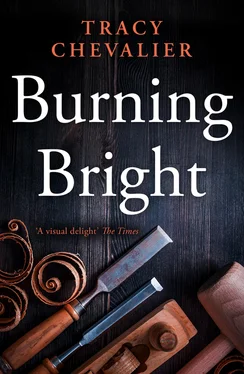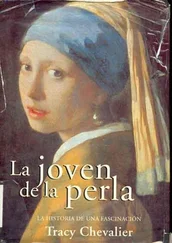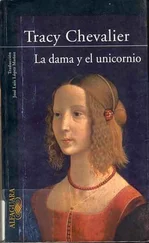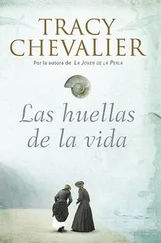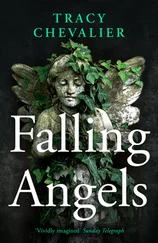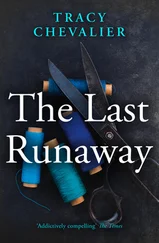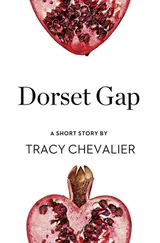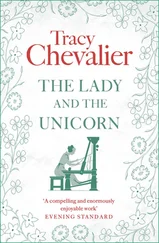‘And d’you know what they were doing while they did it?’
‘What, Mags?’
Maggie thought quickly of the most outlandish thing two people could do while they were meant to be rutting. ‘They were reading to each other!’
Charlie chuckled. ‘What, the newspaper?’
‘That’s not what I—’ Jem began.
‘From a book,’ Maggie interrupted, her voice rising over the noise of the pub. ‘Poetry, I think it was.’ Specific details always made stories more believable.
‘Poetry, eh?’ Dick Butterfield repeated, sucking at his beer. ‘I expect that’ll be Paradise Lost , if they were playing at Adam an’ Eve in their garden.’ Dick Butterfield had once had a copy of the poem, in among a barrowful of books he’d got hold of and was trying to sell, and had read bits of it. No one expected Dick Butterfield to be able to read so well, but his father had taught him, reasoning that it was best to be as knowledgeable as those you were swindling.
‘Yes, that was it. Pear Tree’s Loss ,’ Maggie agreed. ‘I know I heard them words.’
Jem started, unable to believe what he’d heard. ‘Did you say “pear tree”?’
Dick shot her a look. ‘ Paradise Lost , Mags. Get your words right. Now, hang on a minute.’ He closed his eyes, thought for a moment, then recited:
The world was all before them, where to choose
Their place of rest, and providence their guide:
They hand in hand with wandering steps and slow,
Through Eden took their solitary way.
His neighbours stared at him; these were not the sort of words they normally heard in the pub. ‘What you sayin’, Pa?’ Maggie asked.
‘The only thing I remember from Paradise Lost – the very last lines, when Adam an’ Eve are leaving Eden. Made me sorry for ’em.’
‘I didn’t hear anything like that from the Blakes,’ Jem said, then felt Maggie’s sharp kick under the table.
‘It was after you stopped looking,’ she insisted.
Jem opened his mouth to argue further, then stopped. Clearly the Butterfields liked their stories embroidered; indeed, it was the embroidery they wanted, and would soon pass on to everyone else, made even more elaborate, until the whole pub was discussing the Blakes playing Adam and Eve in their garden, even when that was not what Jem had seen at all. Who was he to spoil their fun – though Jem thought of Mr Blake’s alert eyes, his firm greeting, and his determined stride, and regretted that they were spreading such talk about him. He preferred to speak the truth. ‘What do Mr Blake do?’ he asked, trying instead to guide the subject away from what they had seen in the garden.
‘What, apart from tupping his wife in the garden?’ Dick Butterfield chuckled. ‘He’s a printer and engraver. You seen the printing press through his front window, han’t you?’
‘The machine with the handle like a star?’ Jem had indeed spied the wooden contraption, which was even bigger and bulkier than his father’s lathe, and wondered what it was for.
‘That’s it. You’ll see him using it now and then, him an’ his wife. Prints books an’ such on it. Pamphlets, pictures, that sort o’ thing. Dunno as he makes a living from ’em, though. I seen a few of ’em when I went looking to sell him some copper for his plates when he first moved here from across the river a year or two ago.’ Dick Butterfield shook his head. ‘Strange things, they were. Lots o’ fire an’ naked people with big eyes, shouting.’
‘You mean like Hell, Pa?’ Maggie suggested.
‘Maybe. Not my taste, anyway. I like a cheerful picture, myself. Can’t see that many would buy ’em from him. He must get more from engraving for others.’
‘Did he buy the copper?’
‘Nah. I knew the minute I talked to him that he’s not one to buy like that, for a fancy. He’s his own man, is Mr Blake. He’ll go off an’ choose his copper an’ paper himself, real careful.’ Dick Butterfield said this without rancour; indeed, he respected those who would clearly not be taken in by his ruses.
‘We saw him with his bonnet rouge on last week, didn’t we, Jem?’ Maggie said. ‘He looked right funny in it.’
‘He’s a braver man ’n many,’ Dick Butterfield declared. ‘Not many in London show such open support for the Frenchies, however they may talk in the pub. P.M. don’t take kindly to it, nor the King neither.’
‘Who’s P.M.?’ Jem asked.
Charlie Butterfield snorted.
‘Prime Minister, lad. Mr Pitt,’ Dick Butterfield added a little sharply, in case the Dorset boy didn’t know even that.
Jem ducked his head and gazed into his beer once more. Maggie watched him struggling across the table, and wished now that she had not brought him to meet her father. He did not understand what Dick Butterfield wanted from people, the sort of quick smart talk required of those allowed to sit with him on the stool he kept hooked around his foot under the table. Dick Butterfield wanted to be informed and entertained at the same time. He was always looking for another way to make money – he made his living out of small, dodgy schemes dreamed up from pub talk – and he wanted to have fun doing it. Life was hard, after all, and what made it easier than a little laughter, as well as a little business putting money in his pocket?
Dick Butterfield could see when people were sinking. He didn’t hold it against Jem – the boy’s confused innocence made him feel rather tender towards him, and irritated at his own jaded children. He pushed Maggie abruptly from his knee so that she fell to the floor, where she stared up at him with hurt eyes. ‘Lord, child, you’re getting heavy,’ Dick said, jiggling his knee up and down. ‘You’ve sent my leg to sleep. You’ll be needin’ your own stool now you’re getting to lady size.’
‘Won’t nobody give her one, though, and I’m not talking ’bout just the stool,’ Charlie sneered. ‘Chicken-breasted little cow.’
‘Leave off her,’ Jem said.
All three Butterfields stared at him, Dick and Charlie leaning with their elbows on the table, Maggie still on the floor between them. Then Charlie lunged across the table at Jem, and Dick Butterfield put his arm out to stop him. ‘Give Maggie your stool and get another one,’ he said.
Charlie glared at Jem but stood up, letting the stool fall backwards, and stalked off. Jem didn’t dare turn around to watch him but kept his eyes on the table. He took a gulp of beer. He’d defended Maggie as a reflex, the way he would his own sister.
Maggie got up and righted Charlie’s stool, then sat on it, her face grim. ‘Thanks,’ she muttered to Jem, though she didn’t sound very grateful.
‘So, Jem, your father’s a bodger, is he?’ Dick Butterfield said, opening the business part of the conversation since it seemed unlikely that Jem would entertain them further.
‘Not a bodger, exactly, sir,’ Jem answered. ‘He don’t travel from town to town, an’ he makes proper chairs, not the rickety ones bodgers make.’
‘Course he does, lad, course he does. Where does he get his wood?’
‘One of the timber yards by Westminster Bridge.’
‘Whose yard? Bet I can get it for him cheaper.’
‘Mr Harris. Mr Astley introduced Pa to him.’
Dick Butterfield winced at Philip Astley’s name. Maggie’s father could negotiate good deals most places, but not when Mr Astley had got in before him. He and his landlord kept a wide berth of each other, though there was a grudging respect on both sides as well. If Dick Butterfield had been a wealthy circus owner, or Philip Astley a small-time rogue, they would have been remarkably similar.
‘Well, if I hear of any cheaper wood, I’ll let you know. Leave it with me, lad,’ he added, as if it were Jem who’d approached him for advice. ‘I’ll see what I can do. I’ll call in one day, shall I, and have a word with your pa. I’m always happy to help out new neighbours. Now, you’ll be expected back home, won’t you? They’ll be wonderin’ what kept you.’
Читать дальше
